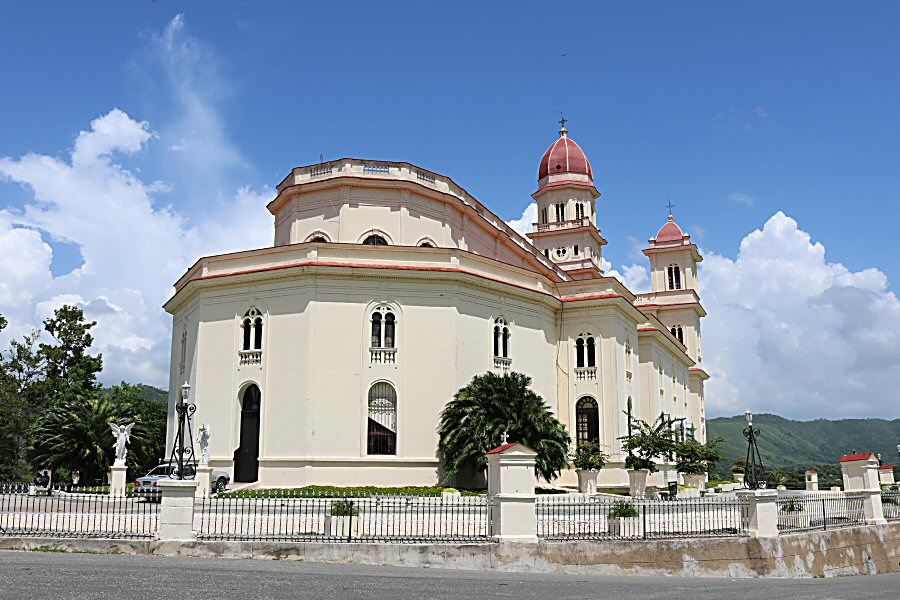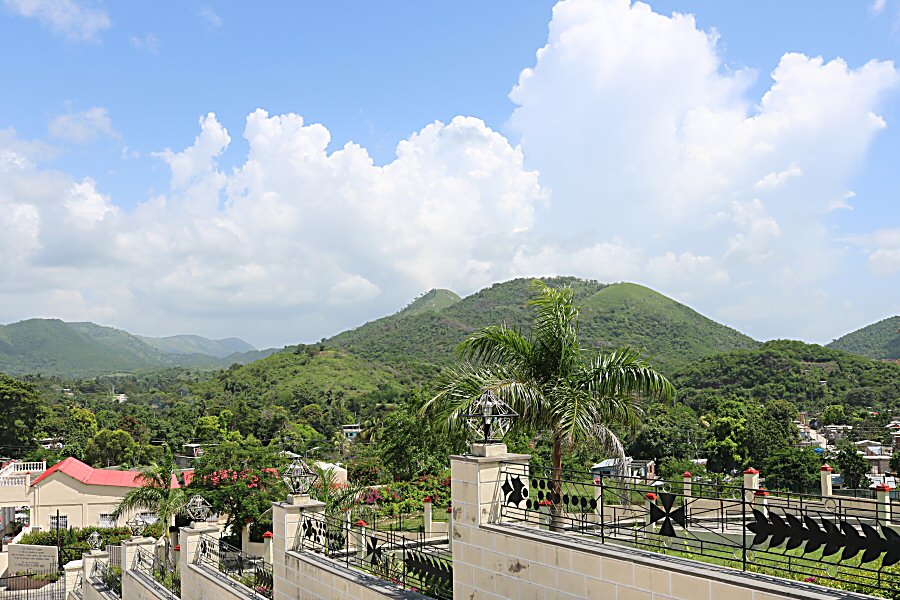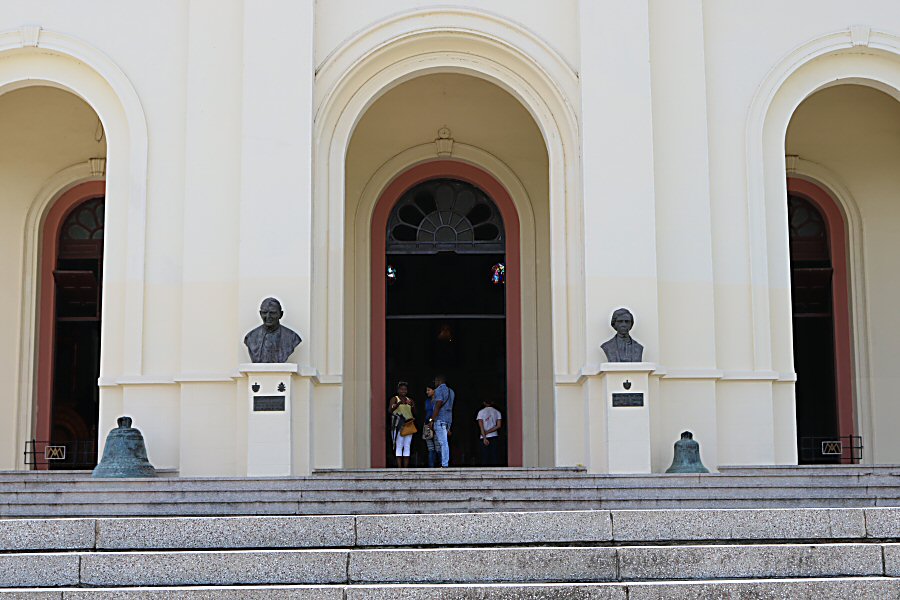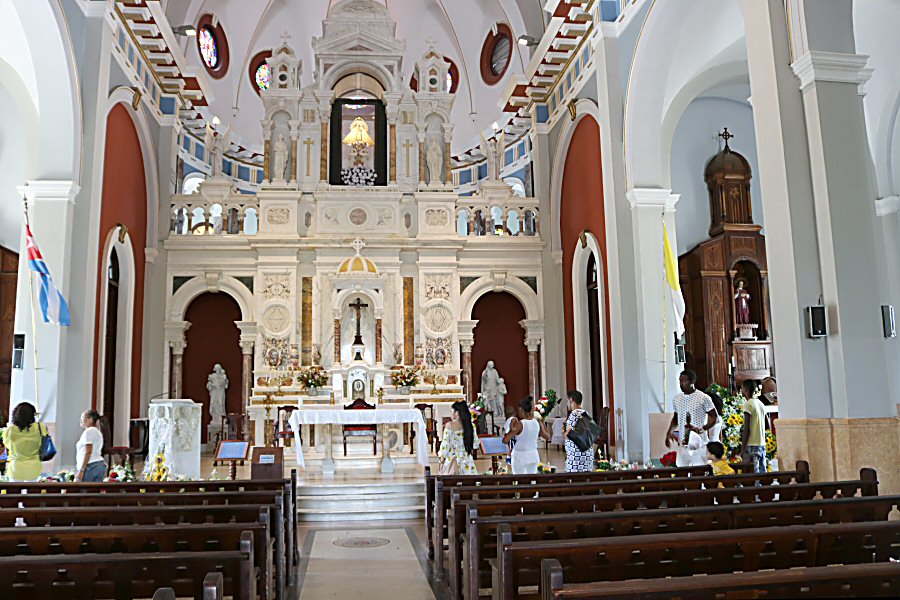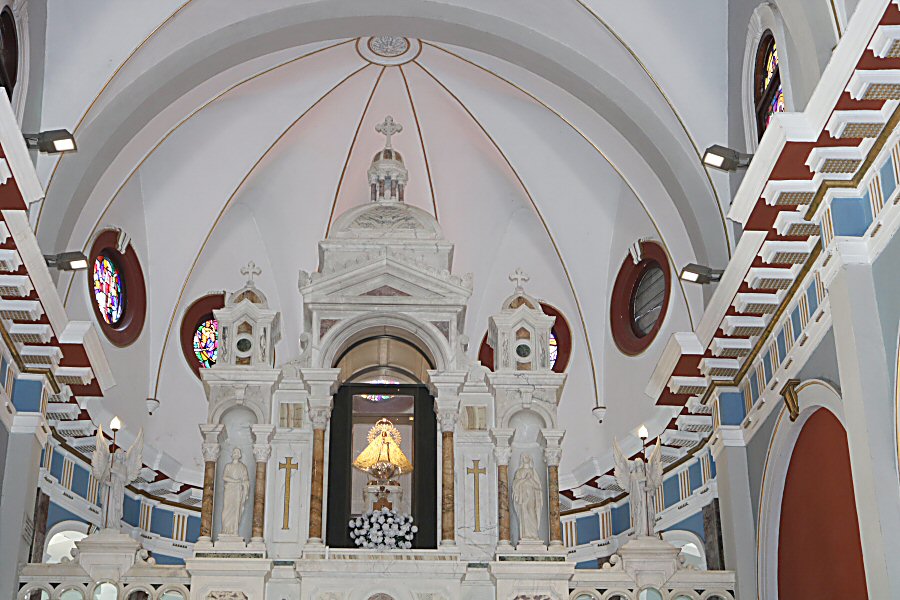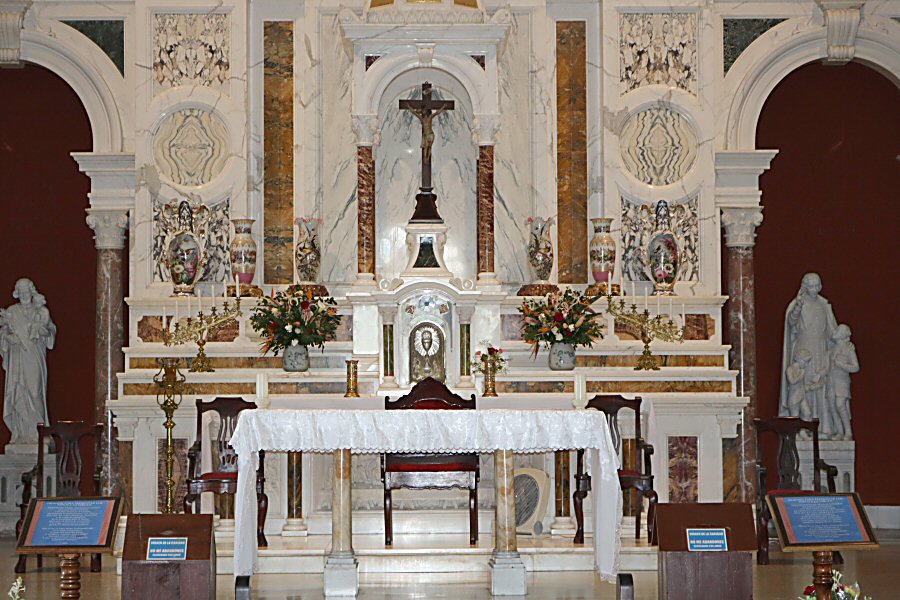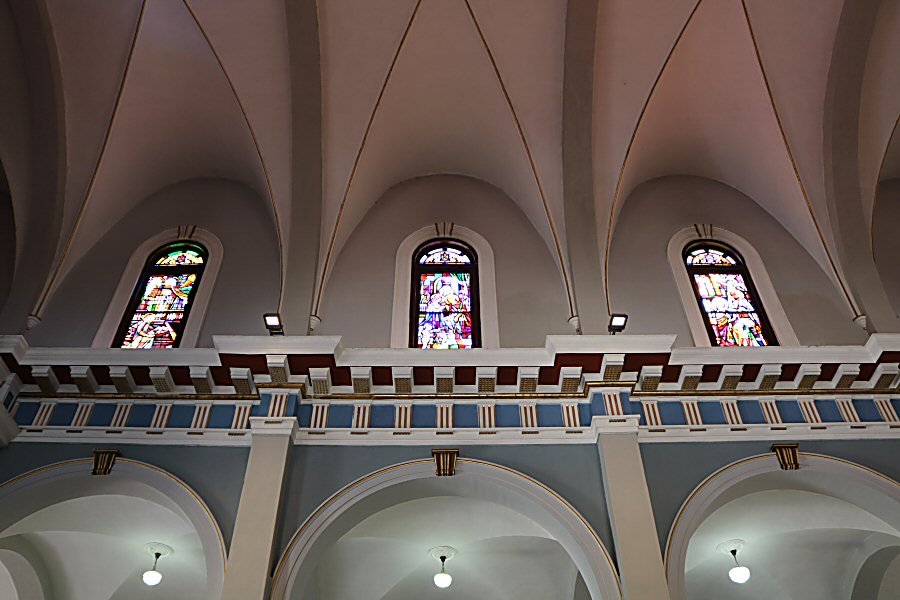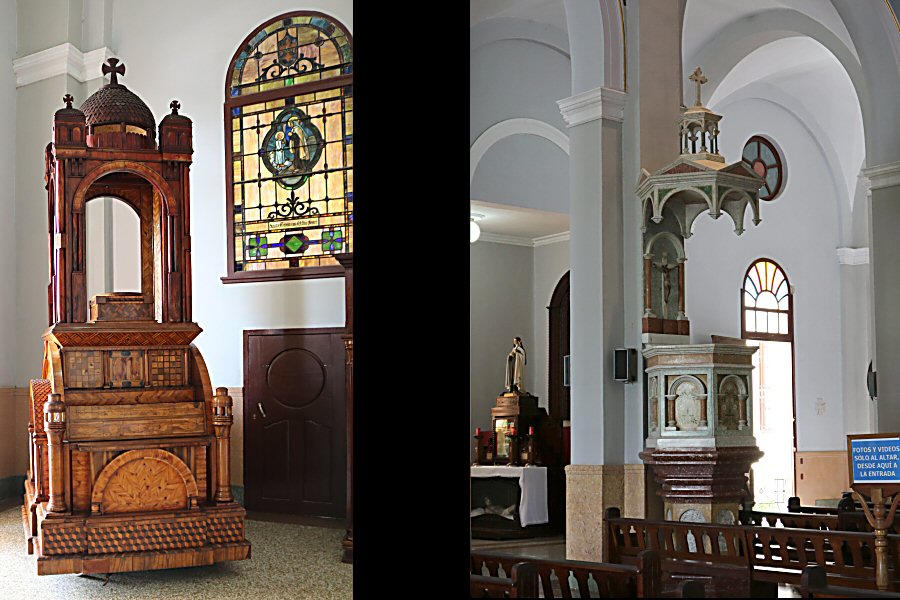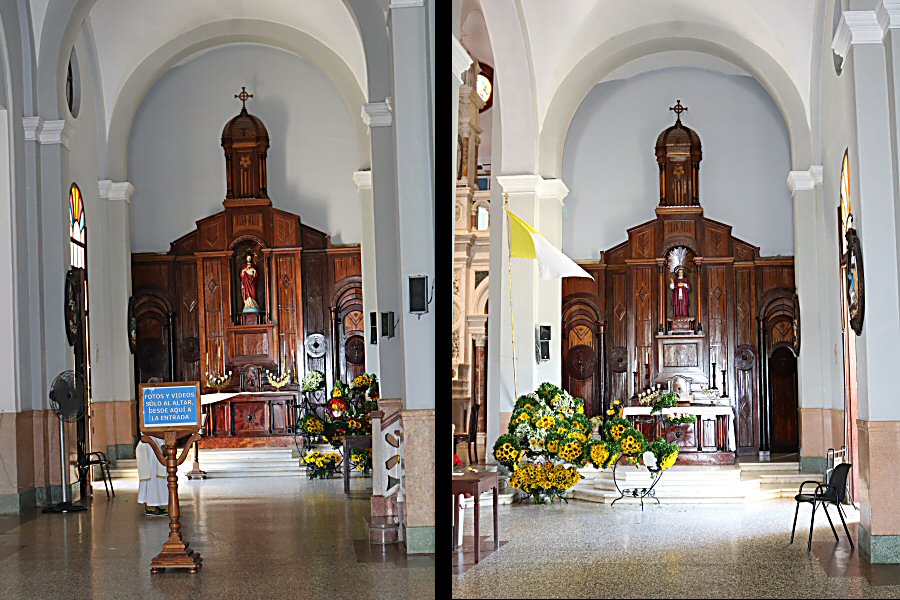The Basilica de la Caridad del Cobre is located 18 km northwest of Santiago de Cuba.
daily 06:30 - 18:00
mass: Monday 10:00, Tuesday - Friday 08:30 & 10:15
Saturday 08:00, Sunday 08:00 - 10:00
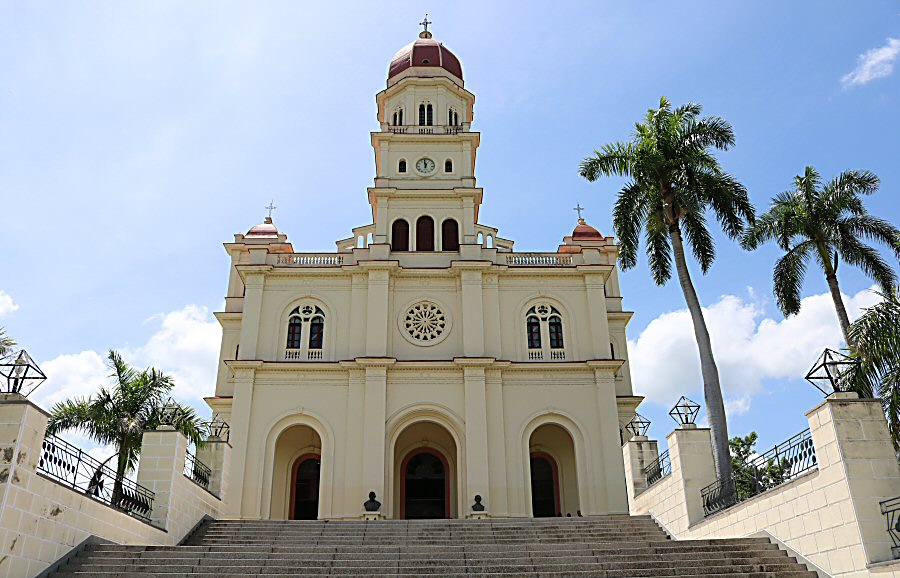

The Basilica
The Basílica de la Caridad del Cobre is one of the holiest and the most visited sanctuaries in the country, as it houses the mysterious statue of Nuestra Señora de la Caridad, Cuba’s patron saint since 1916. The present basilica is built on the site of the previous shrine, on the slope of the hill Santiago del Prado among the palm trees and was inaugurated on September 8, 1927.
The cream-colored basilica is in the
form of a square and is accessed by a long stairway, flanked by
a low wall that has lanterns that remain lit at night. The
building is in the dominant position overlooking the town El Cobre. It has three bell towers, one with a clock in the middle
and the other lower ones at both sides of the roof, pleasingly
capped in red domes. These belfries correspond to the three
navels in the basilica. The main façade appears very symmetrical
by the three doors and the bell towers.
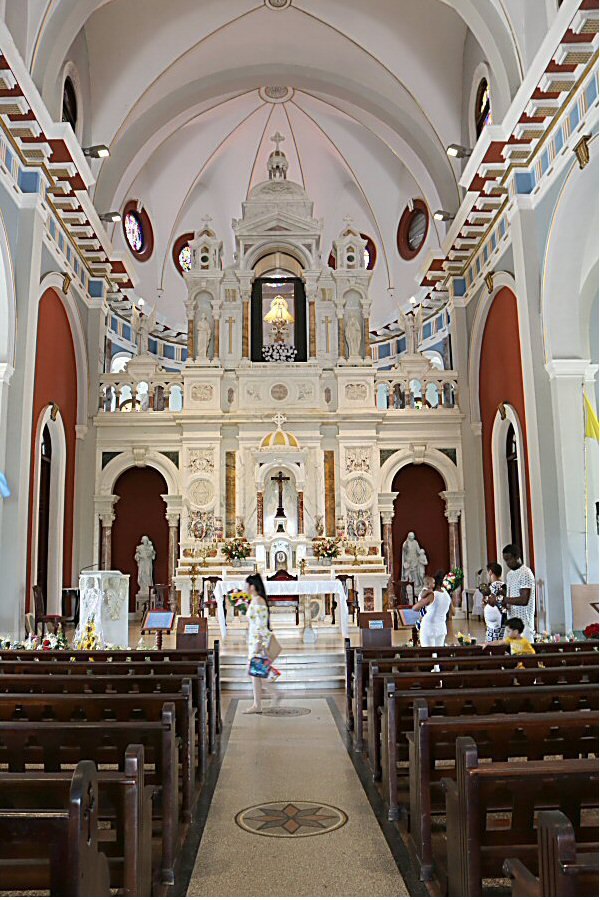 Inside of the church is decorated in
ocher and white tones. The statue of the Virgen de la Caridad is
placed in a small chapel on a pedestal above the high altar, so
that it looks down to the congregation from behind a clear case
high above the pulpit during the mass. It can be seen from all
corners of the main nave. After the mass it is rotated
mechanically to face into an inner sanctum, reached by stairs at
the back of the church, where another altar is always bedecked
by wreaths of bright flowers, left by worshippers. Here the
pilgrims gaze adoringly at the statue, make their requests to
the Virgen de la Caridad, and leave votive gifts in thankfulness
for their fulfilled prays. The main altar is made of marble and
solid silver and decorated with objects of enormous value.
Inside of the church is decorated in
ocher and white tones. The statue of the Virgen de la Caridad is
placed in a small chapel on a pedestal above the high altar, so
that it looks down to the congregation from behind a clear case
high above the pulpit during the mass. It can be seen from all
corners of the main nave. After the mass it is rotated
mechanically to face into an inner sanctum, reached by stairs at
the back of the church, where another altar is always bedecked
by wreaths of bright flowers, left by worshippers. Here the
pilgrims gaze adoringly at the statue, make their requests to
the Virgen de la Caridad, and leave votive gifts in thankfulness
for their fulfilled prays. The main altar is made of marble and
solid silver and decorated with objects of enormous value.
Downstairs, in the Chapel of
Miracles, a variety of objects are displayed, representing the ex-votos of the
grateful faithful to the Virgin due to her benevolence,,
including a rosette and team shirt from Olympic 800 m gold
medalist Ana Fidelia Quirot Moret, the Nobel Prize medal left by
Ernest Hemingway, college diplomas, baseball jerseys,
wheelchairs, crutches, baby clothes, intravenous tubes, concert
posters, medals, letters, countless photographs etc.
The statue of the Virgen de la
Caridad has a height of about 40 cm. Its head is made of baked
clay covered with a polished coat of fine white powder. A crown,
rich in jewels, is placed on its head. It is dressed in an
elaborate golden gown, and it is wearing dangling earrings.
Additionally, it is wearing many expensive jewels brought to it
by grateful pilgrims over the years. Originally, the robe on the
statue was white in color. By passage of time its robes became
embroidered with gold and silver. The yellow color is associated
with the Virgin of Charity, and her shrines are often filled
with yellow flowers. The national shield of Cuba can be seen on
its robe. Its feet rest on a silver crescent moon, attached to a
silver globular stand that depicts the clouds, on which angels
spread their golden wings. It holds the Baby Jesus in her left
arm and a golden cross in its right hand. The Baby Jesus raises
its right hand as in a blessing, and in its left hand he holds a
golden globe. At a whole, it resembles a dark mestiza woman (in
Latin America, a person of mixed race, especially one having
Spanish and one Indian parentage). Among Cuban religious
devotees, the statue is given the title of La Cachita.
